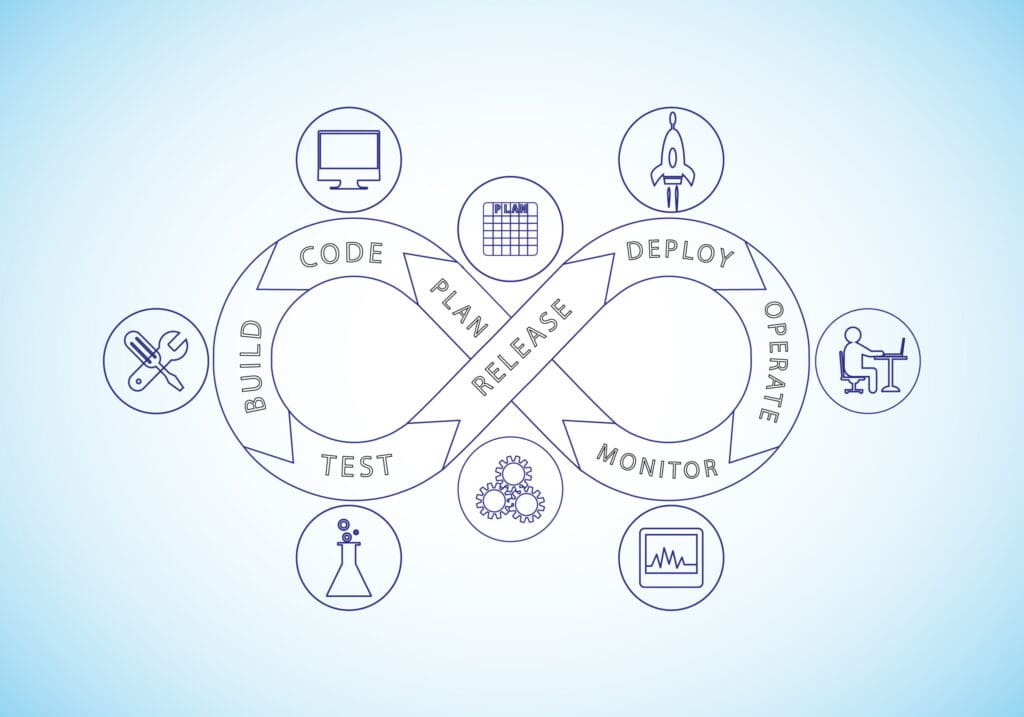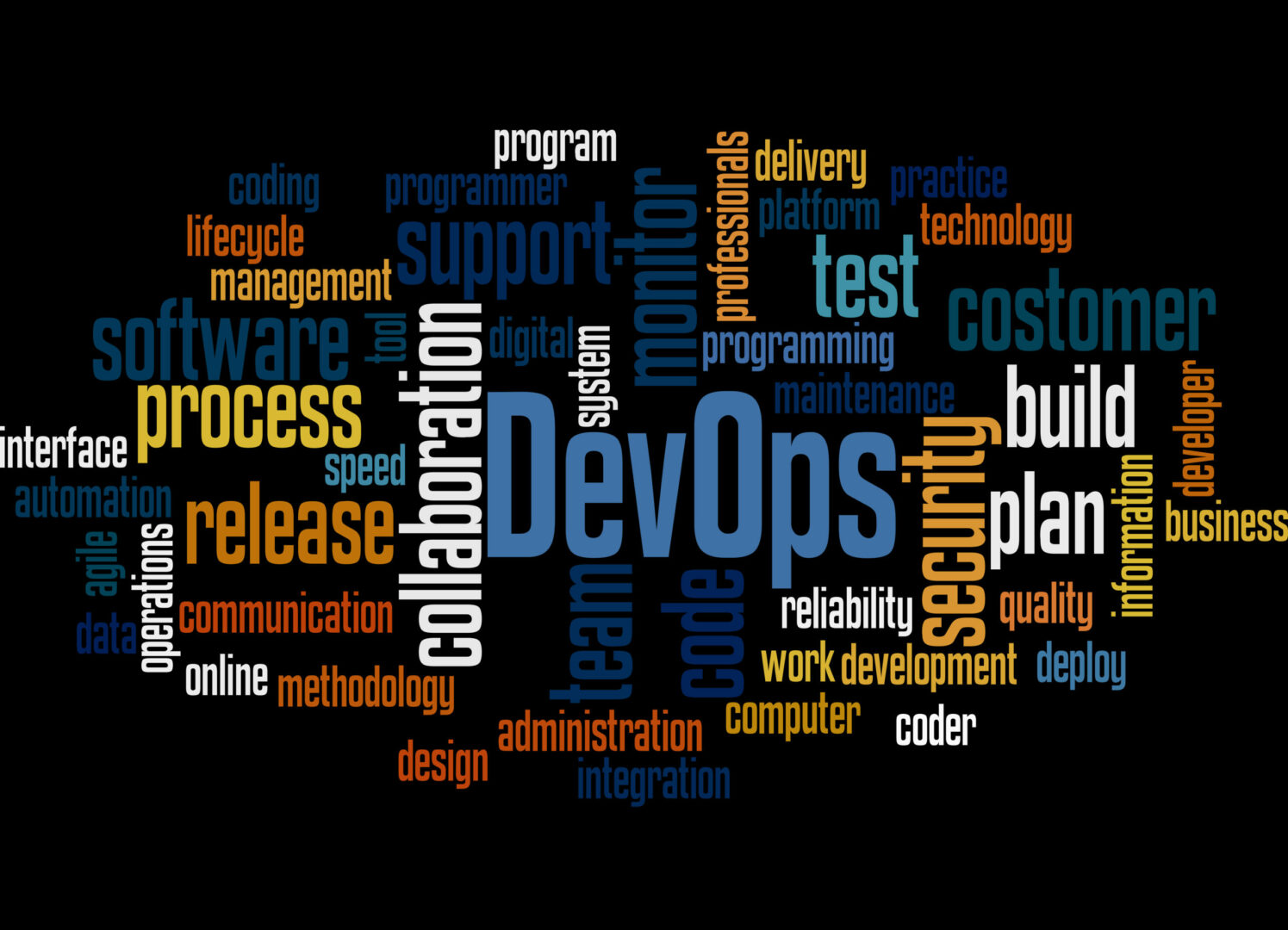You’ve probably heard the term DevOps thrown around at least once, whether in your workplace, in conversations with friends or family, or even in job listings. If you delve into the technological world, amidst all the dimensions and areas within it, you will discover that DevOps is one of the central components. Although this term isn’t new in the IT lexicon, in practice, it’s a field that is constantly evolving and becoming increasingly attractive in the industry.
In the following article, we’ll explain what DevOps is, the tools and technologies required for mastery, and the characteristics that a successful DevOps professional must possess.
What is DevOps?
DevOps is a combination of Development and Operations. It encompasses a set of working methods and tools that enable automation and integration between software development and IT tasks. These practices and tools facilitate the acceleration and optimization of service and product development processes within an organization.
DevOps teams are comprised of individuals with development and IT skills, and their role spans across the product lifecycle, aiming to enhance the speed and quality of software development and deployment. DevOps personnel are involved from the development and testing stages to the deployment and system operation stages, requiring them to have multi-domain skills. It’s a new way of working that has significant implications for teams and organizations.
Common Tools and Technologies in the DevOps World
-
GIT
GIT is the most popular and widespread version control system in the current development arena. It tracks all changes and updates that occur in the code, ensuring code preservation for new versions. Common systems that use GIT, include GitHub, GitLab, and BitBucket.
-
Jenkins
Jenkins is an open-source CI server used as a management system for product build processes across the development stages. It is supported by various operating systems, including macOS, Windows, and Linux. It facilitates continuous workflow, enabling the execution of build, test, and deployment processes for various platforms.
-
Kubernetes
Kubernetes is an open-source platform used to automate the management of clusters of services and applications. Servers running containers (self-contained applications that share computing resources) are allocated within the platform.
-
Azure/AWS/GCP
Azure/AWS/GCP are cloud computing platforms that provide cloud services to organizations and technology companies. These platforms offer a wide range of technological services, including storage, development, and computing. Utilizing them allows companies to tackle technological challenges they face without investing time or money in developing in-house solutions, computing services, servers, file storage, IoT, and AI engines.
Software Product Lifecycle
Have you encountered the software product lifecycle infinity loop? It’s a diagram describing the lifecycle stages in the work processes of product development and illustrates their connections. The loop reflects the continuous interactions between various professionals in the different links of the chain and highlights the need for constant collaboration to maintain synchronized, fast, and high-quality work processes.

The software product lifecycle is comprised of eight stages, where the left side of the loop represents the processes, capabilities, and tools required for development, and the right side represents the actions required for distribution and operation.
A Day in the Life of a DevOps Industry Professional
The daily routine of a DevOps professional includes continuous and seamless interaction with development, operations, QA teams, and more. As previously mentioned, each team in an organization consists of individuals with different roles, so one of the main tasks of a DevOps professional is to bridge the gaps between them to advance processes. They need to demonstrate advanced technical skills, including familiarity with tools and automation, to identify bottlenecks, and build the necessary solutions for them.
While development professionals are required to think in-depth, DevOps personnel need to exhibit broad thinking, to oversee and analyze the organization’s workflows for streamlining and improvement. The ideal DevOps professional is characterized by a few key traits: they must possess a systemic vision, a service-oriented nature, and a technological approach.
DevOps Pro – The Infinity Labs R&D Career Path
The DevOps Pro course offered by Infinity Labs R&D is not just another DevOps course in the market; rather, it’s a comprehensive, unique, and in-depth program where participants learn and practice extensively through hands-on work. It spans 20 weeks and is based on the Infinity Labs R&D Mentored Social Learning™ (IMSL™) methodology developed in-house. It combines the unique methodology with independent research and team collaboration, in an industry simulated development team work environment. Upon completion of the course, students are integrated into DevOps positions in leading Israeli and international tech companies, which usually require several years of experience, and they begin qualifying for these roles during the course.
The program is divided into two parts: learning the technological infrastructure and deepening the methodology. Learning the infrastructure includes areas such as systems, programming languages, operating systems, and more. Deepening the methodology involves understanding the Software Development Life Cycle (SDLC) stages, familiarity with potential professional challenges, and the common industry tools and solutions.
From a business perspective, the program operates on a WIN-WIN-WIN model: Infinity Labs R&D provides the training, and only once graduates start working at one of the company’s clients that they can excel at over time, do they recoup their investment in the process.



